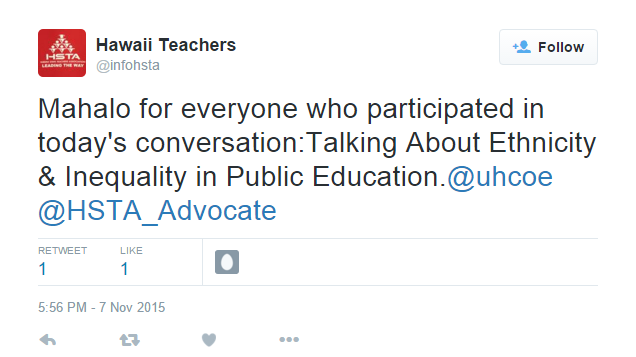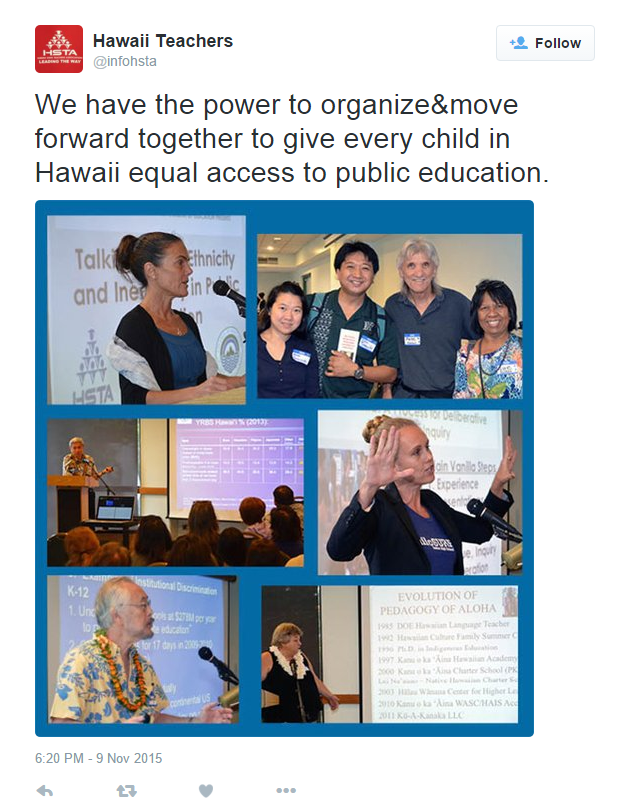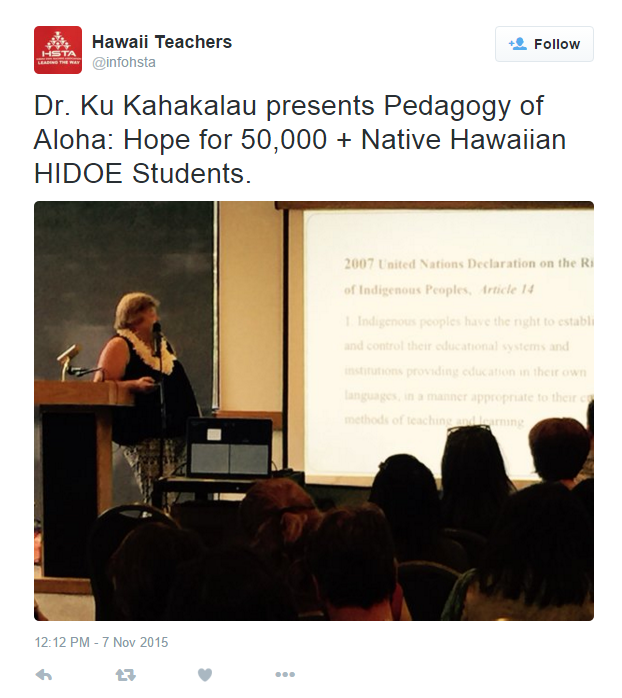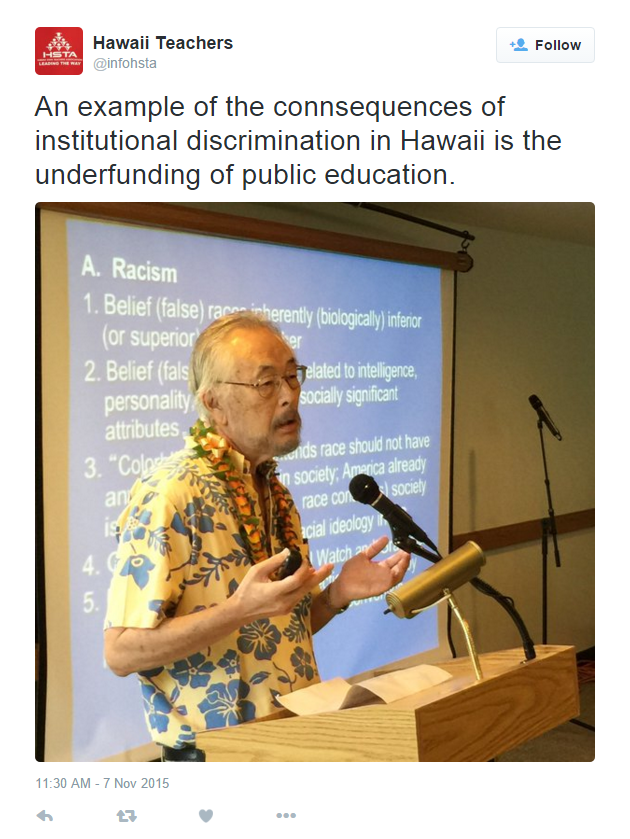Talking about Ethnicity and Inequality in Public Education



The leadership of the Hawaii State Teachers Association (HSTA) collaborated with the University of Hawaii Uehiro Academy for Philosophy and Ethics in Education and the University of Hawaii College of Education to facilitate an open and frank teacher discussion about ethnicity, inequality and social injustice in Hawaii’s K-12 public educational institutions. We knew that academic and community leaders are doing important intellectual and political work on race, class and privilege in Hawaii, but we wanted to do more to make this part of the work of educators in the public school system. We believe that by creating spaces for ‘critical conversations’ in the larger education community, we can have a greater impact how teachers understand and engage in public education issued in Hawaii.
This event took place on Saturday, November 7, 2915, from 9:00 am – 12:00 pm at The University of Hawaii Campus Center Executing Dining Room. Close to eighty HIDOE teachers, UHM COE professors, and pre-service teachers attended the event. The agenda was:
8:30 Registration Check In and Assignment of Break Out Groups
9:00 Welcome Dr. Patricia Halagao of the UH Manoa COE and Hawaii State BOE
9:05 Opening Remarks, Purpose, & Introductions Dr. Amy Perruso of the HSTA
9:10 Outlining the Structure of the Program Dr. Amber Makaiau of the Uehiro Academy
9:15 Panel Presentation
Dr. Jon Okamura: Institutionalized Racism/Discrimination in Public Education in Hawai’i
Dr. Earl Hishinuma: Youth, Ethnicity, and Public Health Outcomes in Hawai’i
Additional Documents: Adult Support at Home in Hawaii | Adult Support at Home or at School in Hawaii | Safe and Effective Messaging for Suicide Prevention
Dr. Ku Kahakalau: Pedagogy of Aloha: Hope for 50,000+ Native Hawaiian HIDOE Students
10:15 Audience Questions
10:30 Break
10:40 Small Group Break Out Lead by Uehiro Academy HIDOE p4cHI Teacher Facilitators
- Introductions
- Questions
- Vote
- Inquiry
- Reflect
11:40 Large Group Share, Possible Solutions, & Continuing the Dialogue
In this format, the panelists layed out the context and main issues for the first hour. Then the participants moved into smaller groups for inquiry discussions, organized around the philosophy for children (p4cHI) deliberative inquiry model for about an hour. Finally, participants concluded the morning’s work by coming back to the whole group discussion organized around the question of ‘what is to be done?’




Posted in: Latest News
Leave a Comment (0) ↓